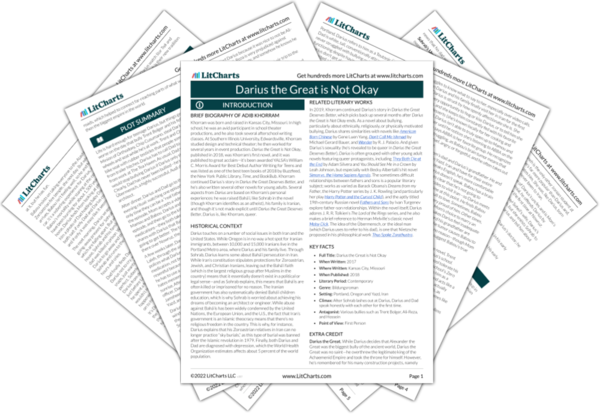The Kellner & Newton messenger bag that Darius borrows from Dad to take to Iran represents Darius and Dad’s changing relationship. Darius explains initially that he hates the bag for various reasons ranging from that he dislikes messenger bags in general to seeing this particular branded one as a reminder that Dad is disappointed Darius won’t ever be an architect like him. It signifies, to Darius, all the ways he’ll never be good enough for his dad—and moreover, Darius insists at this point that it’s not even worth trying to be good enough.
Over the course of the trip though, Darius’s relationship to the messenger bag begins to change, as does his relationship to Dad. It’s surprising for Darius to discover in the airport that carrying a messenger bag rather than a backpack has its perks: he can, for instance, easily carry both his little sister Laleh and the bag. Similarly, as he and Dad finally speak openly and honestly with each other at the end of their trip to Iran, Darius comes to the conclusion that Dad himself isn’t so bad—he’s flawed for sure, but he’s nevertheless doing the best he can to support and protect his son. This mirrors how, when Darius and his family get home, Darius decides to take the messenger bag to school as his schoolbag rather than let Mom buy him a new backpack. Darius has, thanks to his experiences in Iran, become a different person. Though Darius maintains that he’s never going to be an architect and please Dad in that regard, Darius has decided that he can take from Dad any bits and pieces that he likes (such as his bag preferences), and by doing so, he can connect with his father while also honing his own sense of self.








